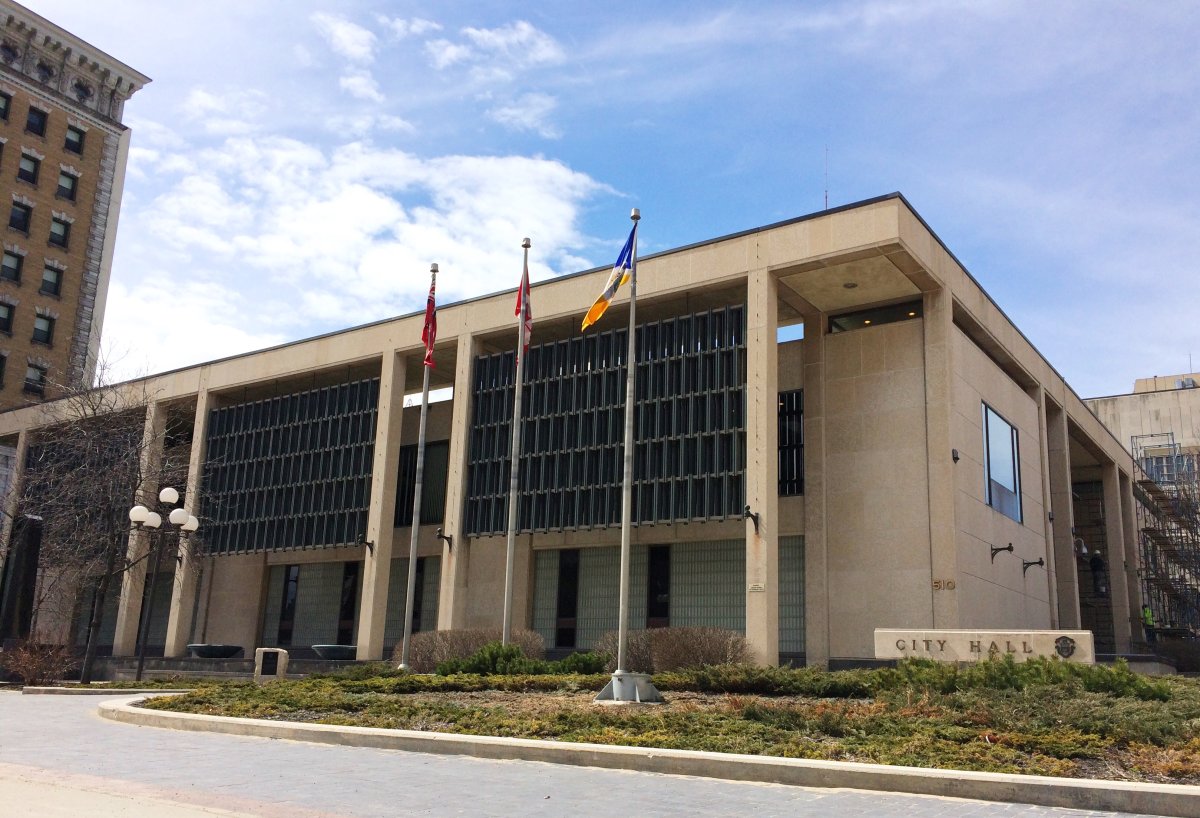Winnipeg city councillors voted unanimously in favour of two motions at an emergency council meeting about COVID-19 issues Monday morning.

Councillors held the special meeting to look at two main subjects: purchasing non-medical face masks for the fire-paramedic service and extending property and business tax deferrals until the end of November.
At the meeting councillors all voted in favour of the motion to spend $325,000 on a public awareness campaign and to pay for non medical masks to be distributed to city staff as well as transit users and city facility users.
The public awareness campaign comes with a $75,000 price tag, while the city will spend $250,000 for the masks.
On Friday the city announced face coverings would become mandatory in all city-operated facilities and on city vehicles, including Winnipeg Transit.
The new rules went into effect Saturday in an attempt to help reduce the transmission of COVID-19.
City staff have been instructed to let people know about the new measure if they aren’t wearing a mask but said Winnipeggers won’t be denied service for refusing to cover up.

Transit riders, however, could face a $100 fine for non-compliance, and the city said it may decide to implement enforcement if non-compliance becomes an issue.
“This is definitely a change for all of us — for the users of our facilities, the citizens and staff. We continue to ask for patience,” Mayor Brian Bowman said adding he felt the issue of masks on buses needed to be addressed before students head back to school.

Get weekly health news
To help residents get used to the new requirement, the city will be providing face masks to be distributed to members of the public in city buildings or on buses for the first two weeks of the mandate, or until supplies run out.
Councillors also all supported a motion at Monday’s meeting to extend business and personal property taxes until the end of November to help out those struggling in the city as a result of the ongoing novel coronavirus pandemic.
“It’s good for a lot of businesses because they do have to pick which bill to pay. We also know that in the next few weeks fall will be upon us, restaurants won’t have the ability to use their outdoor patios and they will still be restricted to 50 per cent capacity,” Coun. Kevin Klein said.
Winnipeg declared a state of local emergency and first waived tax penalties for up to three months amid the coronavirus pandemic at an emergency city council vote back in April.
“Flu season is just around the corner to add to the pandemic,” said Coun. Markus Chambers. “I’ve listened to the residents of my ward both who have stated no to a mask mandate and those who fully support a mask mandate in an effort to reduce the spread of the virus.”
The city expects this tax deferral move to cost the city $1.58 million.
Before the meeting Mayor Brian Bowman said the city is still coping with the economic impacts of the pandemic, and the deferral period will help ease the burden for businesses and property owners.
Last week the Conference Board of Canada predicted that economic activity will not return to pre-COVID-19 levels until the second half of 2021.
–With files from Amber McGuckin and Sam Thompson

Questions about COVID-19? Here are some things you need to know:
Symptoms can include fever, cough and difficulty breathing — very similar to a cold or flu. Some people can develop a more severe illness. People most at risk of this include older adults and people with severe chronic medical conditions like heart, lung or kidney disease. If you develop symptoms, contact public health authorities.
To prevent the virus from spreading, experts recommend frequent handwashing and coughing into your sleeve. They also recommend minimizing contact with others, staying home as much as possible and maintaining a distance of two metres from other people if you go out. In situations where you can’t keep a safe distance from others, public health officials recommend the use of a non-medical face mask or covering to prevent spreading the respiratory droplets that can carry the virus. In some provinces and municipalities across the country, masks or face coverings are now mandatory in indoor public spaces.
For full COVID-19 coverage from Global News, click here.













Comments